Acrylic Film Capacitor Failures
Gideon Analytical Laboratories received two acrylic film capacitors for electronic failure analysis. Six good capacitors were also provided for comparison. A capacitor is a passive two-terminal electrical component that stores potential energy in an electric field. The effect of a capacitor is known as capacitance. While some capacitance exists between any two electrical conductors in proximity in a circuit, a capacitor is a component designed to add capacitance to a circuit. A film capacitor is electrical capacitors with an insulating plastic film as the dielectric, sometimes combined with paper as a carrier of the electrodes. The goal was to determine why the acrylic film capacitors were failing.
Electronic failure analysis ensued. The capacitors were electrically tested for capacitance, which is the ratio of the change in an electric charge in a system to the corresponding change in its electric potential. Next, a HAST test (Highly Accelerated Stress Test) was administered to determine moisture sensitivity. The reading was 5161ohmF. There was no leakage current. The capacitors were cross-sectioned and inspected. No contamination was found. There was some slight delamination, but it was within the vendor’s specifications. Upon further inspection, there was a shorting of the triac between A1 and A2, and the A1 die was cracked. A triac is a three-electrode semiconductor device that will conduct in either direction when triggered by a positive or negative signal at the gate electrode. The crack on the A1 die was most likely a manufacturing error during the dicing process.
Gideon Analytical Laboratories is committed to solving electrical problems just as much as the Oxygen atom is committed to itself. Our intense commitment, passion, and expertise have allowed us to be the problem solvers for the electronics industry for decades. We have helped hundreds of companies. We have saved them billions of dollars. Ensure your products are reliable. Give Gideon Analytical Laboratories a call today.
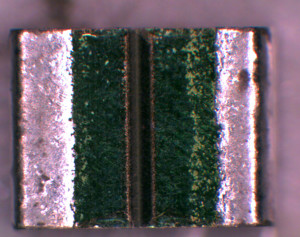
New Capacitor
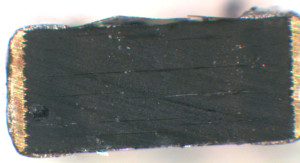
C34, minor delamination, but within specs
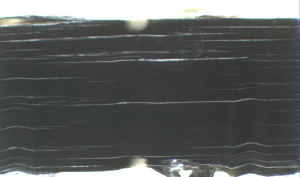
C67 having been through the HAST test and measured
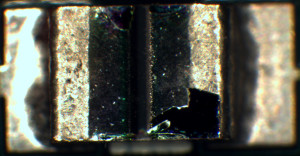
C67 had part of the termination removed
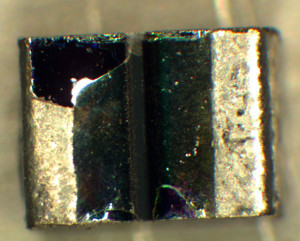
C67 removed from the PCB, no contamination found
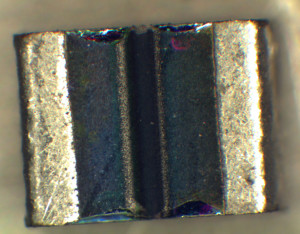
C34; neither this or C67 had any electrical issues